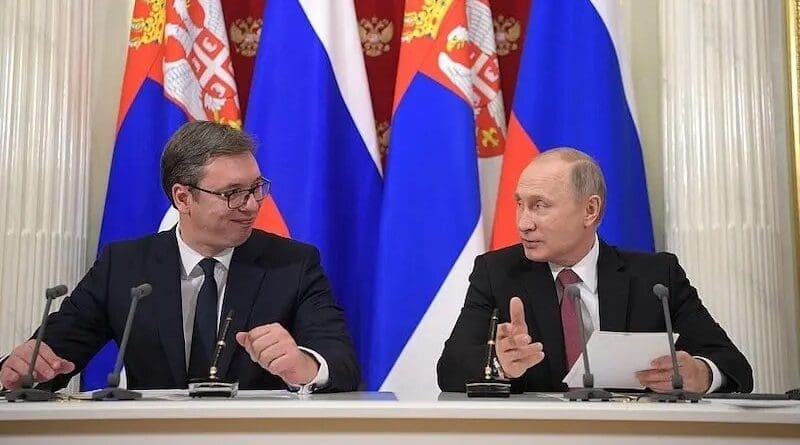Serbia: Vucic Seals Kremlin Summit With Gas Deal
By Filip Rudic
At a cordial meeting in Moscow, the Presidents of Serbia and Russia pledged to further closen relations and oversaw the signing of several agreements, including on energy.
The Russian and Serbian presidents, Vladimir Putin and Aleksandar Vucic, oversaw the signing of a number of agreements, including one allowing Serbia to re-export Russian gas, in Moscow on Tuesday.
“I’d like to wish [Putin] success in the upcoming presidential elections so that he continues to pursue the policy of further strengthening ties between our countries,” Vucic said after their meeting.
He also thanked Russia for vetoing a 2015 UN resolution, which would have classified the Bosnian Serb massacre of Bosniaks [Bosnian Muslims] in Srebrenica in 1995 as an act of genocide.
He also thanked Putin for supporting Serbia’s “territorial integrity” on the issue of Kosovo, the mainly ethnic Albanian former province of Serbia whose unilaterally declared independence in 2008 Serbia rejects.
Putin backed Serbia’s line on Kosovo, while saying that Moscow would accept any agreement that is acceptable to both Serbia and Kosovo.
“The situation must be resolved politically, based on dialogue, and be in line with resolution 1244 of the UN Security Council,” Putin said.
The 1999 resolution authorised the deployment of an international security mission in Kosovo but the same time affirmed the then Yugoslav state’s territorial integrity.
Vucic in turn re-affirmed Serbia’s existing position on Crimea, which is not to join EU or US sanctions on Russia imposed because of the 2014 annexation of Crimea from Ukraine.
The gas agreement, which will stay in force until 2021, permits Russia to deliver up to 5 billion cubic metres of gas to Serbia annually.
Russia exported over 2 billion cubic metres of gas to Serbia this year, a rise of 26 per cent compared to 2016, and Russia’s Gazprom is set to increase the amount by 15 per cent next year, Beta news agency reported on Tuesday.

